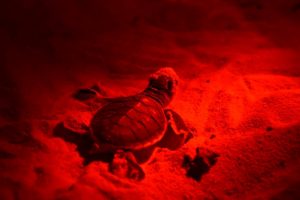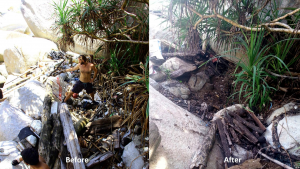The Kent Work Experience Bursary gives an opportunity to students to think about work experience in a different way. The world is the smallest its even been thanks to how easy and accessible traveling has become. Nevertheless, flight costs to go abroad still place a heavy burden on students; therefore, receiving a bursary to aid with the costs incurred is a great advantage for students seeking to have a different internship experience from the ones offered at home.
Finding an internship abroad is an exciting process because you find what seems like endless opportunities. In the field of conservation, the Tropics are one of the most interesting and thrilling places to work because of their abundant and diverse levels of biodiversity (over 50% of Earth’s species are found in tropical rainforests alone!). The experience that I gained doing proper field-work research in Malaysia cannot be compared to any other work I’ve done; it gave me a new insight on future careers and in what direction to guide my professional life.
I spent 10 weeks of my summer on Lang Tengah, a 2 km2 island off the coast of Terengganu, in Malaysia. I interned at a small organisation called Lang Tengah Turtle Watch (LTTW) which works to protect sea turtles nesting on the island. There are 7 species of sea turtles, 3 of which can be found in Terengganu. Unfortunately, due to unsustainable fishing practices, turtle egg consumption and detrimental human activities, one of the species is virtually extinct (the Leatherback), and another, the Hawksbill, is on the brink of extinction. LTTW receives volunteers from all around the world each week, and one of my duties on the project’s eco-friendly camp-site was to educate the volunteers on sea turtle ecology, as well as shark ecology, coral ecology and marine pollution.
Living 24 hours a day for 10 weeks on a camp-site without basic commodities, such as running water, plumbing and electricity, allowed me not only to gain a skill much required for field-work conservation research, but it also gave me a new outlook on life. Living in busy cities and being constantly preoccupied with different activities alienates people from nature, so that they can no longer feel the bond they intrinsically have to the environment. However, when you become submerged by nature, you quickly reform that lost relationship. Furthermore, living in a very basic manner allowed me to experience for a very limited time the needs of impoverished communities. Most conservation work takes place in areas inhabited by indigenous or poor communities, and disputes between environmental organisations or governmental institutions and these communities compromise the success of conservation projects. Talking to the inhabitants of the island allowed me to understand their needs and the ways that they viewed their neighbours, a foreign conservation group. As can be imagined, disputes with the locals arose every so often, especially with those that used to poach the eggs and still maintained a perception that the turtles were there for them to exploit.
My favourite part of the internship was seeing the diverse wildlife, namely swimming past three spotted eaglerays. The numerous species I saw improved my species identification skills and increased my curiosity on groups of animals I wasn’t previously so interested in, such as amphibians and terrestrial reptiles. Furthermore, I was very keen to coordinate the volunteers and organise daily activities for them, such as going snorkelling, beach clean-ups and quizzes. I learned lots about managing people, communicating effectively and building on my leadership skills. All these skills will definitely serve me in future careers and also differentiate me to employers following graduation. Overall, my internship allowed me to experience new cultures and gave me a sense of what it would be like working in different countries and environments.
A hatchling making its way to sea. Red light is used at night so that they don’t feel disoriented by bright lights.
Progress made during weekly beach clean-ups.


